You are using an out of date browser. It may not display this or other websites correctly.
You should upgrade or use an alternative browser.
You should upgrade or use an alternative browser.
All things HBCU related thread
- Thread starter Mister B. M. Ed.
- Start date
-
- Tags
- hbcu
More options
Who Replied?Mister B. M. Ed.
The Devil’s Greatest Advocate…..
White guys in any D9 frat is commendable, because you KNOW they had to go through extra shit to make it.
TheNightKing
J.A.P.A.N.
Nah, they don’t. Any good chapter is going to make sure everybody goes through hell, lol.White guys in any D9 frat is commendable, because you KNOW they had to go through extra shit to make it.
At least back in my day and at least at my chapter. A lot of chapters straight paper nowadays.
DOS_patos
Unverified Legion of Trill member
The fact the even have access is an issue.
As if they do t already have enough connections and networking on their side …
Think about how hard it is for black folk to get into pwi’s let alone join an historically all white frat.
Can we keep anything untainted?
As if they do t already have enough connections and networking on their side …
Think about how hard it is for black folk to get into pwi’s let alone join an historically all white frat.
Can we keep anything untainted?
The Lonious Monk
Celestial Souljah
White people being in black frats and sorors isn't new just like black people being in white frats and sorors. This shit just isn't that common because frats and sorors are one of those things that still very much exist along racial lines.
Fraternities and sororities are pretty shitty organizations across the board. Of all the things wrong with them, black orgs allowing non blacks in them should be at the bottom of the list.
Fraternities and sororities are pretty shitty organizations across the board. Of all the things wrong with them, black orgs allowing non blacks in them should be at the bottom of the list.
DOS_patos
Unverified Legion of Trill member
Well I would love to know those issues.White people being in black frats and sorors isn't new just like black people being in white frats and sorors. This shit just isn't that common because frats and sorors are one of those things that still very much exist along racial lines.
Fraternities and sororities are pretty shitty organizations across the board. Of all the things wrong with them, black orgs allowing non blacks in them should be at the bottom of the list.
The Lonious Monk
Celestial Souljah
Well I would love to know those issues.
Hazing so bad that chapters are routinely kicked off campuses, history of sexual assaults (moreso frats than sorors), colorism and other appearance related discrimination historically (moreso sorors than frats). Basically organizations where members have to be terrorized and humiliated just become part of the club are inherently stupid.
DOS_patos
Unverified Legion of Trill member
Colorism?Hazing so bad that chapters are routinely kicked off campuses, history of sexual assaults (moreso frats than sorors), colorism and other appearance related discrimination historically (moreso sorors than frats). Basically organizations where members have to be terrorized and humiliated just become part of the club are inherently stupid.
But nah. Cot damn. I was aware if some but nog all that.
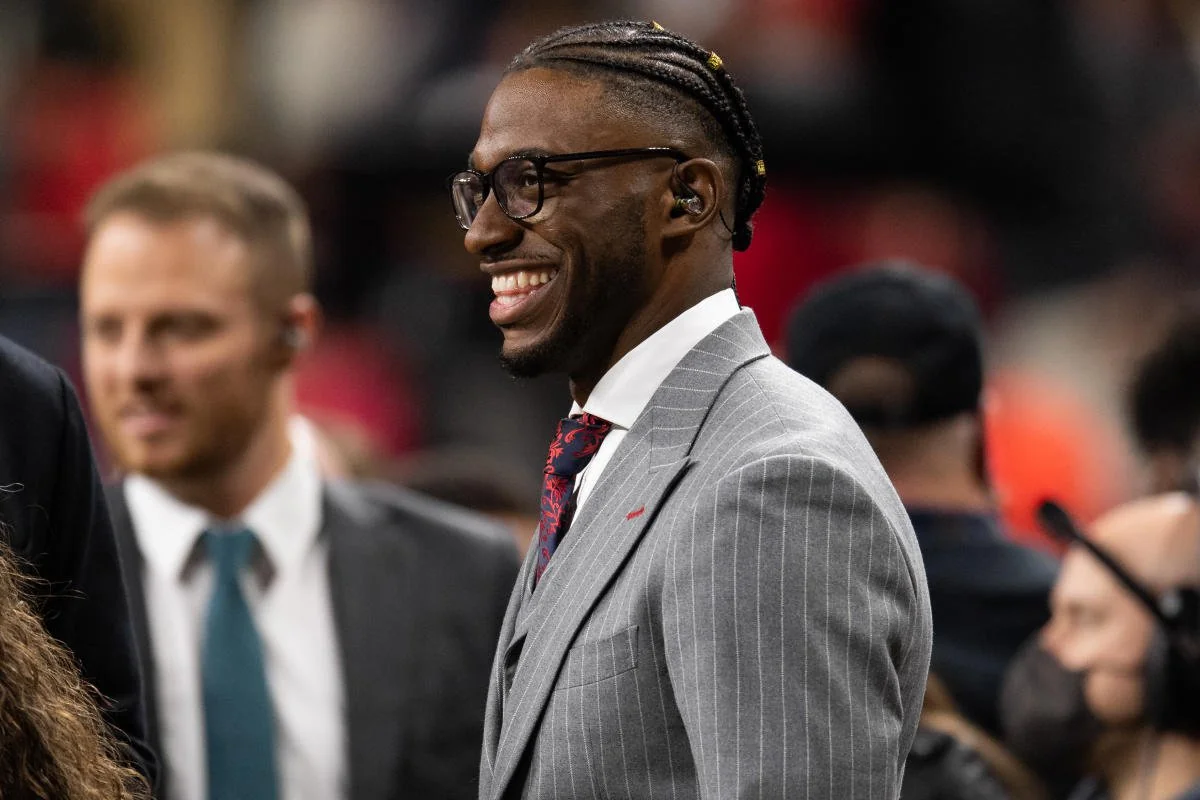
Robert Griffin III Visits Bowie State Sport Management Class
HBCU News - Campus News Robert Griffin III Visits Bowie State Sport Management Class HBCU News, Robert Griffin III Visits Bowie State Sport Management Class
 hbcunews.com
hbcunews.com

Robert Griffin III Visits Bowie State Sport Management Class
Former Washington Commanders and Baltimore Ravens quarterback Robert Griffin III visited with Bowie State University sport management students on Nov. 16 to share career insights that could help the future leaders as they prepare for the workforce.
Griffin played seven seasons in the NFL, earning Offensive Rookie of the Year and Pro Bowl honors in 2012 before getting his start at ESPN as a football commentator/analyst in 2021.
Griffin fielded all manner of questions from the students during an hour-long Zoom call and covered a range of topics from tips to improve their event times in track and field to transitioning from the football field to the commentator’s table at ESPN. Though two very different jobs, Griffin talked about how his approach for both positions was consistent. His main ingredient for success always involved conducting as much research and preparation as possible.
“I spend the entire day Wednesday studying for my Saturday game,” said Griffin, as he detailed what he does to prepare for covering a college football game. “I’ve got two new teams I have to know. I got to know how their season’s been going, the key players and the scheme they run so I can articulate that the right way to the viewer.”
TheNightKing
J.A.P.A.N.
The stuff you mentioned is fringe, not the norm. At least that’s been my observation as a frat member.Hazing so bad that chapters are routinely kicked off campuses, history of sexual assaults (moreso frats than sorors), colorism and other appearance related discrimination historically (moreso sorors than frats). Basically organizations where members have to be terrorized and humiliated just become part of the club are inherently stupid.
The Lonious Monk
Celestial Souljah
The stuff you mentioned is fringe, not the norm. At least that’s been my observation as a frat member.
Things may have changed in recent times. I don't know. But it damn sure wasn't fringe when I was in undergrad.
TheNightKing
J.A.P.A.N.
I guess it depends on the chapter too. Our shit always been tight and controlled. We don’t let niggas wild out and do the bullshit. Nor do the chapters we are cool with.Things may have changed in recent times. I don't know. But it damn sure wasn't fringe when I was in undergrad.
StringerBell
OG
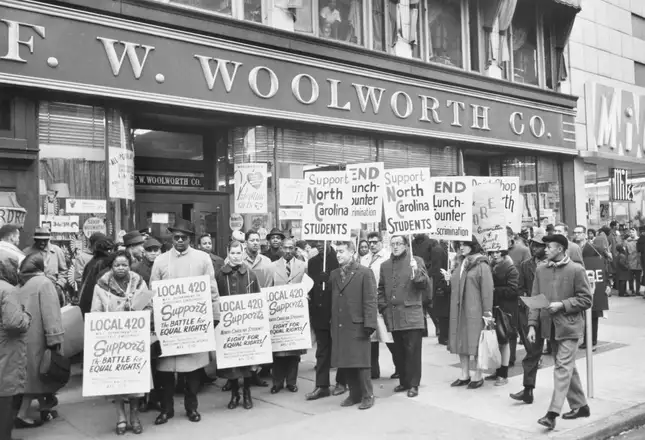
The History of Student Activism at HBCUs
HBCU News - Campus News The History of Student Activism at HBCUs HBCU News, The History of Student Activism at HBCUs
 hbcunews.com
hbcunews.com

The History of Student Activism at HBCUs
by Shaun White
May 8, 2024
By Sydney Clark
For the past two weeks, college campuses across the nation have lit up in protests against the U.S. government’s support of Israel in its war with Gaza.
From Columbia University to University of California, Los Angeles to the University of Texas, Austin, students have faced arrests and suspensions as a result of their activism and so-called revolts. There’s no telling what will happen to Morehouse College students as they plan a demonstration in response to President Joe Biden’s upcoming commencement appearance after he signed off on more funds to be sent to Israel.
All this ruckus seems to ring a bell back to the early stages of the Civil Rights Era, when Black students from HBCU campuses advocated for things like an African American studies program and, more importantly, to be released from the shackles of Jim Crow legislation and other issues affecting the Black community. Those kids were also met with fleets of police officers. Some kids even lost their life.
Student activists at historically Black colleges and universities (HBCUs) have helped change the course of U.S. history.
Many young people who attend these institutions bloom into activists who dedicate their lives to supporting their communities. And they also make change by influencing laws through their activism.
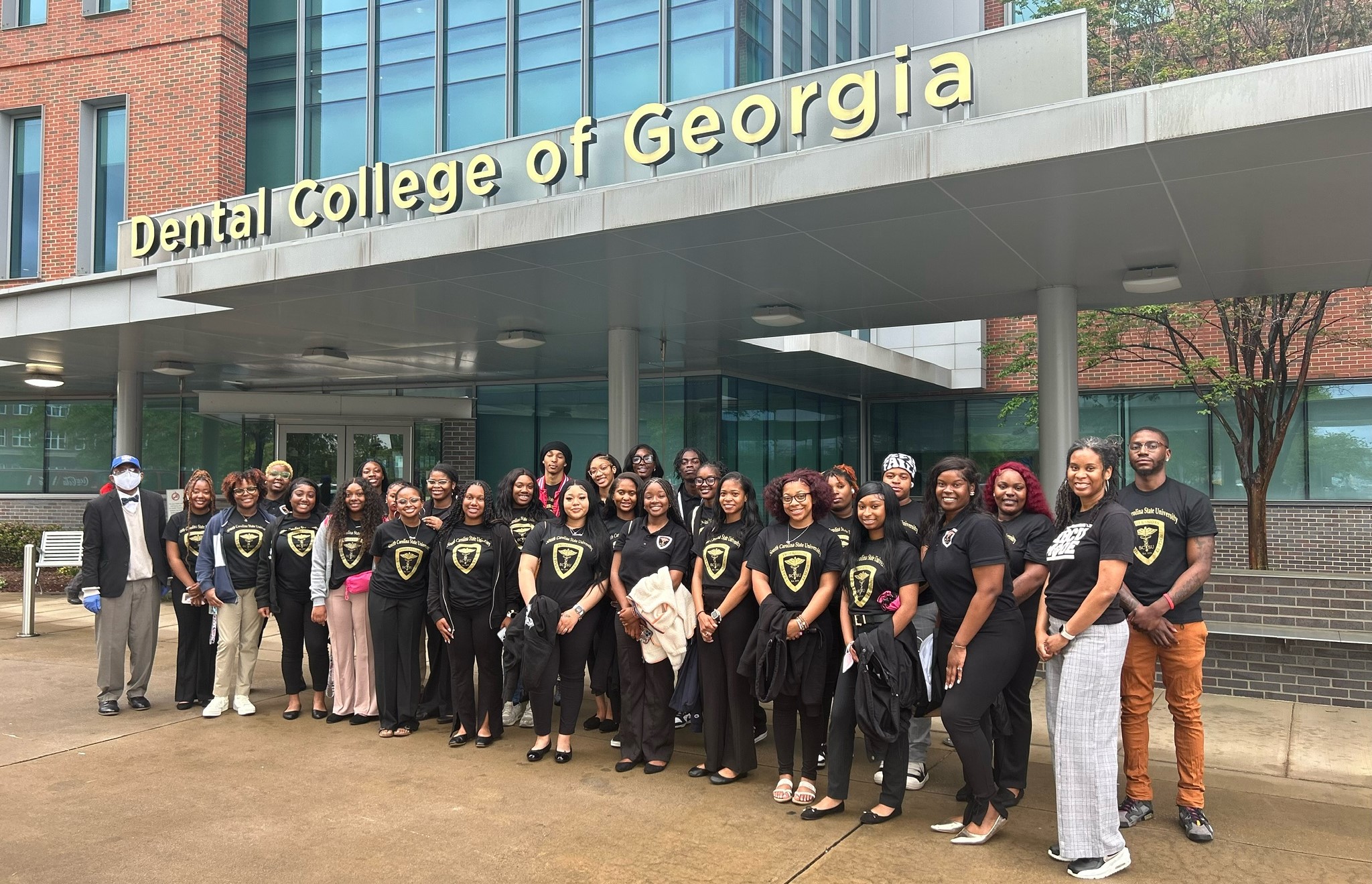
SC State students explore new research and technology on university bus tour
HBCU News - Campus News SC State students explore new research and technology on university bus tour HBCU News, SC State students explore new research and technology on university bus tour
 hbcunews.com
hbcunews.com
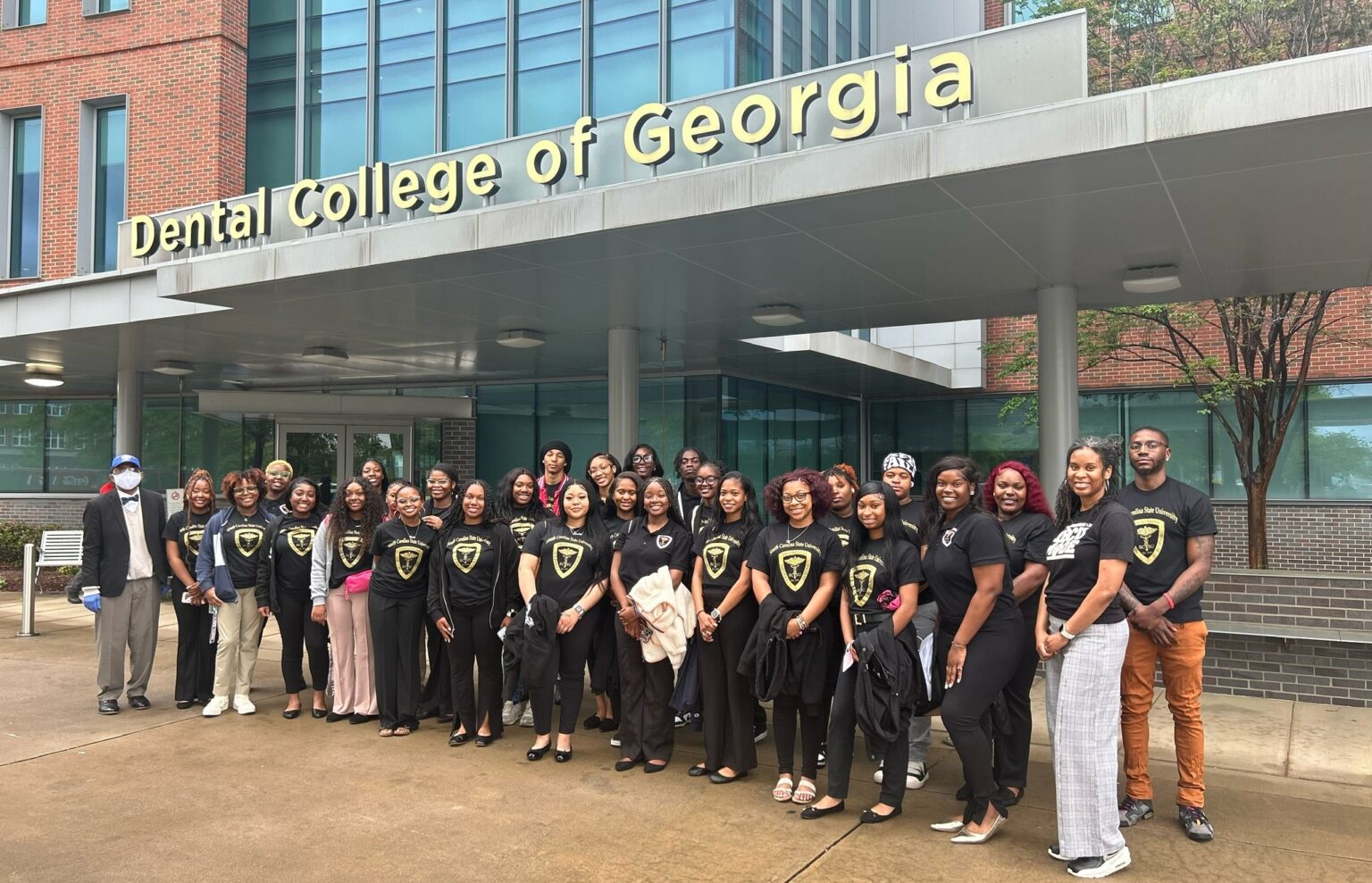
SC State students explore new research and technology on university bus tour
Courtesy of South Carolina State University
Twenty-six students from the South Carolina State University Health Professions Society set out on a historic bus tour to Georgia. They toured professional schools including Augusta University, Clark Atlanta University, Morehouse School of Medicine in Atlanta and Life University in Marietta.
On day one, students toured each institution including research facilities. They were engaged in informational panel sessions during which they were able to have questions answered by the admissions staff.
On the second and third days, students participated in Life University’s Leadership Weekend retreat. They toured the campus, explored novel technology, and received on-the-spot acceptances for seniors interested in chiropractic education or professional studies at Life University.
Health Professions Society is a student-led organization dedicated to developing and nourishing many health care professionals from SC State since its founding in 1970.
With prominent alumni from each institution, it only took a few phone calls for senior biology major Taryn Sparkman to orchestrate the bus tour. The trip had a successful outcome with the guidance of the advisor, Dr. James Stukes, biology faculty member Dr. Nicole Strong, and College of Science, Technology, Engineering, Mathematics and Transportation Dean Dr. Stanley Iheakwezu.
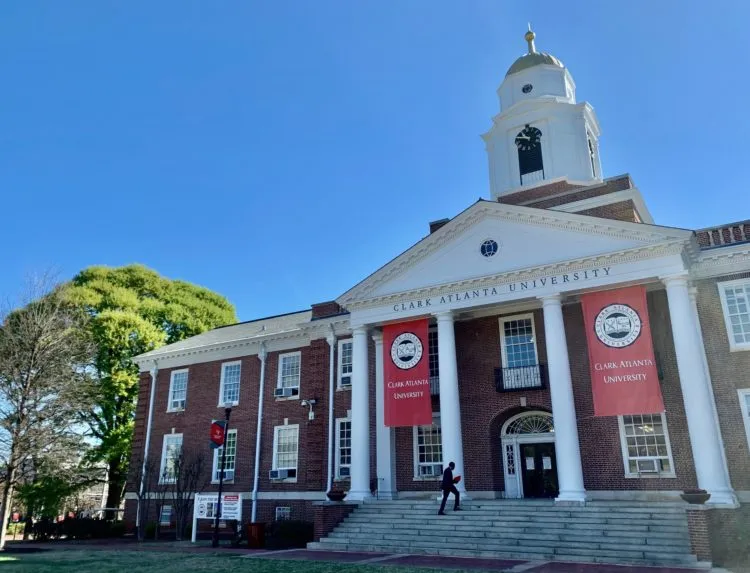
Clark Atlanta University Receives Record-Breaking Number of Applicants 46,414 for Class of 2028
HBCU News - Campus News Clark Atlanta University Receives Record-Breaking Number of Applicants 46,414 for Class of 2028 HBCU News, Clark Atlanta University Receives Record-Breaking Number of Applicants 46,414 for Class of 2028
 hbcunews.com
hbcunews.com

Clark Atlanta University Receives Record-Breaking Number of Applicants 46,414 for Class of 2028
by Shaun WhiteMay 10, 2024
By Hunter Bell
Clark Atlanta University is among the Historically Black Colleges and Universities (HBCUs) of “choice” according to data revealing the institution’s record-breaking number of applicants.
According to CAU’s office of undergraduate enrollment, this year the University has received more than 46,000 applications for the incoming Freshman Class of 2028, a 6% increase from last year and an 18% increase since 2022 directly after COVID.
Dr. Cherise Peters, Vice President for Enrollment Management and Retention at Clark Atlanta University, said “The future continues to be bright for Clark Atlanta University. There is no lack of students wanting to come to CAU; it’s a powerful place and they’re coming.”
Victoria Smiley, Clark Atlanta University’s SGA President-Elect 2024-2025, shared her first choice for pursuing her undergraduate degree was CAU. “I came to Clark Atlanta University because of the institution’s strong Mass Media Arts department. After touring the department and CAU’s beautiful campus I was sold,” Smiley said. “I am an Isabella T. Jenkins Scholar in CAU’s honors program, and I’ve received numerous scholarships from several organizations to attend Clark Atlanta. The faculty and staff made me feel welcome and the experiences here empowered me to transform from a shy young lady into an impactful student leader. I am constantly pushed out of my comfort zone, but I am growing, and I like it.”
With only 1,200 slots available for incoming freshmen, admittance into the University is undoubtedly competitive. The preferred minimum high school GPA is 3.0 on a 4.0 scale that’s up from 2.6, and this year, the average GPA of admitted first-time freshmen is 3.7 up from 2.9 in 2021. The number of students accepted by undergraduate admissions is largely based on their academic profile.
Peters contributes the upward trend to a variety of factors to include a strong interest in CAU’s brand, new and innovative events such as CAU’s Admitted Students Day, improved communications within the office, and an improved relationship with the institution’s communications unit.

Spelman College Reflects on the 1976 Lock-In Protest
HBCU News - Campus News Spelman College Reflects on the 1976 Lock-In Protest HBCU News, Spelman College Reflects on the 1976 Lock-In Protest
 hbcunews.com
hbcunews.com

Courtesy of Spelman College
On March 25, 2024, more than 100 students, staff, faculty and alumnae gathered in the Camille Cosby Fine Arts Center auditorium to view never-before-seen footage from the Spelman College Protest of 1976.
The screening and panel event, titled Forgotten Herstories – “The 1976 Lock-In of the Spelman Board of Trustees,” served to acknowledge the bravery and sacrifice of the Spelman students who overtook the Board of Trustees meeting almost 48 years ago and demanded the College appoint a Black woman president.
“This is the beginning of further discussions about activism, especially on this campus,” said Dr. Beverly Guy-Sheftall, C’66, founding director of the Women’s Research and Resource Center, Anna Julia Cooper Professor of Women’s Studies, and participating faculty member in the 1976 protest. “And it is the hope that Spelman’s history, this history that has not been talked about as much as we’d like, will be more visible in the histories of the College and provide our students with a more complex, nuanced, comprehensive view of who Spelman has been and how we have evolved since 1881.”
A Look Back
At the time of the 1976 protest, over 95 years after Spelman College was founded in 1881, the College had yet to appoint a Black woman as president. When Former President Dr. Albert Manley announced his retirement after 23 years, students, staff and faculty eagerly anticipated that the Spelman College Board of Trustees would appoint someone who reflected the student population.
However, in April of 1976, the Board approved the appointment of Dr. Donald Stewart to succeed former President Manley – a decision that spurred mass dissatisfaction across campus, according to Naming Our Own & Claiming Black Womanhood: The Spelman College Protest of 1976, a scholarly article written by Dr. Richard D. Benson II, former associate professor in Spelman’s Department of Education. For there to not have been at least one Black woman qualified enough to serve as president in the eyes of the Board was simply unacceptable to the College community, according to the article.
StringerBell
OG
StringerBell
OG
These two may help someone out there:

 hbcunews.com
hbcunews.com

The Howard University School of Education recently launched an online degree program for students who have completed at least 60 college credit hours. The program was introduced to offer opportunities for the nearly 50 million adult learners who have earned college credit and have an interest in earning their degrees.
The program offers enrollees the opportunity to complete a human development degree. Due to the interdisciplinary nature of the curriculum, this program offers career pathways to advanced degrees and prepares students to work in many fields, including public policy, health services, counseling, and more, according to Morris Thomas, Ph.D., assistant provost for digital learning and director of the Center for Excellence in Teaching, Learning and Assessment.
“Online learning has been, for more than a decade, one of the fastest growing sectors of higher education” Thomas said. “Students are demanding this modality and Howard continuously focuses on responding to this demand. Engaging in this modality helps us to advance opportunities for current and prospective students and expand our reach as an institution.”

Howard University’s New Online Degree Program Provides New Opportunities for Continuing Education
HBCU News - Campus News Howard University’s New Online Degree Program Provides New Opportunities for Continuing Education HBCU News, Howard University’s New Online Degree Program Provides New Opportunities for Continuing Education
 hbcunews.com
hbcunews.com

Howard University’s New Online Degree Program Provides New Opportunities for Continuing Education
The Howard University School of Education recently launched an online degree program for students who have completed at least 60 college credit hours. The program was introduced to offer opportunities for the nearly 50 million adult learners who have earned college credit and have an interest in earning their degrees.
The program offers enrollees the opportunity to complete a human development degree. Due to the interdisciplinary nature of the curriculum, this program offers career pathways to advanced degrees and prepares students to work in many fields, including public policy, health services, counseling, and more, according to Morris Thomas, Ph.D., assistant provost for digital learning and director of the Center for Excellence in Teaching, Learning and Assessment.
“Online learning has been, for more than a decade, one of the fastest growing sectors of higher education” Thomas said. “Students are demanding this modality and Howard continuously focuses on responding to this demand. Engaging in this modality helps us to advance opportunities for current and prospective students and expand our reach as an institution.”
